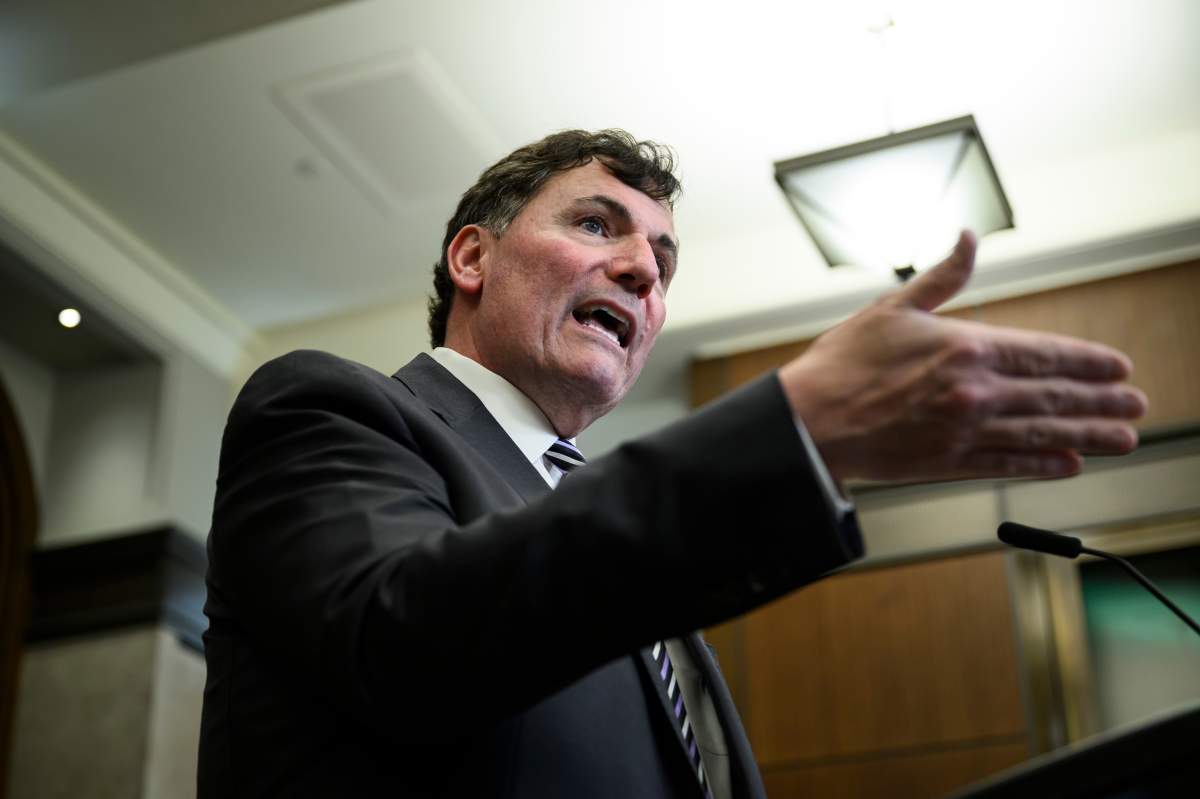 in a press conference Saturday.
in a press conference Saturday.
The government will be consulting judicial experts and opposition leaders to decide what to do next, including who could be best to lead the rest of Johnston’s work or even who might lead a public inquiry, what the terms of reference would be and how one would respect classified information.
“We’re confident we can find the right eminent person to lead this next public phase of engagement,” LeBlanc said. “We are not looking for delays.”
LeBlanc said he hopes the government can receive specific suggestions from opposition parties in the coming days including names of individuals who could lead the process.

Get daily National news
“It’s our government’s hope that the opposition parties will treat this issue with the seriousness it deserves and that we will be able to chart a path forward,” LeBlanc said.
Johnston was appointed by Trudeau in March to look into how the government has handled allegations of interference by China into Canada’s elections, which were first brought to light in a series of reports by Global News and the Globe and Mail that cited national security sources and classified documents.
Johnston announced his resignation from the position on Friday following weeks of scrutiny over what the opposition parties called a conflict of interest due to his ties to Trudeau’s family and the Pierre Elliott Trudeau Foundation.
Last week, the House of Commons passed a non-binding resolution calling for Johnston to step down over the “appearance of bias.”

The resignation marks a sudden turn from Johnston’s commitment to stay on as special rapporteur in the wake of the House motion, which was brought by the NDP. At that time, Johnston said he would only take instructions on his work and his future from the Trudeau government, not Parliament.
In his resignation letter, Johnston reiterated his conclusion that public hearings should be held “both to educate the public and to consider necessary reforms to various aspects of the government’s systems and policies dealing with foreign interference,” rather than a public inquiry.
“A deep and comprehensive review of foreign interference, its effects, and how to prevent it, should be an urgent priority for your Government and our Parliament,” he wrote.
With files from Global News’ Sean Boynton.
- Daylight saving time 2026: Here’s when you should set your clocks forward
- Liberals survive confidence vote as House passes budget implementation bill
- Conservative MP searches for ‘antifa’ in federal government, Canadian Armed Forces
- Canadians stranded in Puerto Vallarta after violence disrupts flights home to Edmonton








Comments
Want to discuss? Please read our Commenting Policy first.